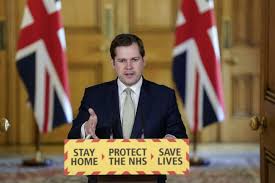UK govt announces £76 million to support vulnerables

London: The government has announced a £76m package to support the most vulnerable in society, including victims of domestic violence and modern slavery, rough sleepers and vulnerable children.
Acknowledging that the coronavirus lockdown is making it harder for people in often dangerous situations to seek help, communities secretary Robert Jenrick said victims of domestic abuse would get more support with housing.
Show more
Victims will get priority access to local housing, with funds given to charities to support those needing help. “For some in our society these measures involve sacrifices that none of us would wish anyone to bear,” said Jenrick. “For victims of domestic abuse it means being trapped in a nightmare.”
Addressing victims of domestic violence directly, Jenrick said: “You are not alone, you do not have to stay at home, you can and should leave the home if you’re in danger. … Our outstanding police will be there for you, they will help you.”
The government’s domestic abuse bill, which had its second reading in parliament last week, would create “the first ever legal definition of domestic abuse” and ensure victims of domestic violence were given priority status for housing.
Responding to the announcement, Jon Sparkes, chief executive of the charity Crisis, said: “We strongly commend the government for making this lifesaving change to the domestic abuse bill, which will ensure survivors have somewhere safe to call home.”
Addressing concerns about continuing homelessness, Jenrick announced that Louise Casey, who previously led a review into community cohesion in Britain, will lead a new taskforce to tackle the issue, adding that more than 5,400 rough sleepers – 90% of those “known to councils” – have been offered safe accommodation in the past month.
The government would also give extra support to the 1.8 million vulnerable people currently told to isolate entirely during the coronavirus lockdown, with food parcels set to be delivered to those without the support of friends and family, he said.
Speaking at the news conference, the deputy chief medical officer for England, Jenny Harries, said the NHS was coping well with coronavirus and had critical care capacity. But while the so-called R-rate – the disease’s rate of transmission – was down and there had been “a sustained and consistent” fall in deaths from coronavirus, many challenges remained before the lockdown could be eased.
Updating the daily figures around the disease, Jenrick revealed that the UK saw a further 621 deaths in hospitals, care homes and the wider community in the last 24 hours, bringing the total number of deaths to 28,131.





